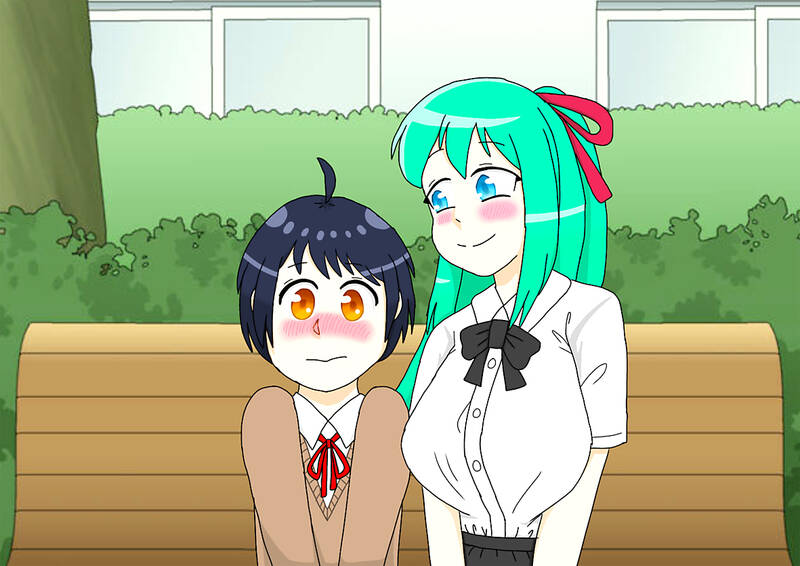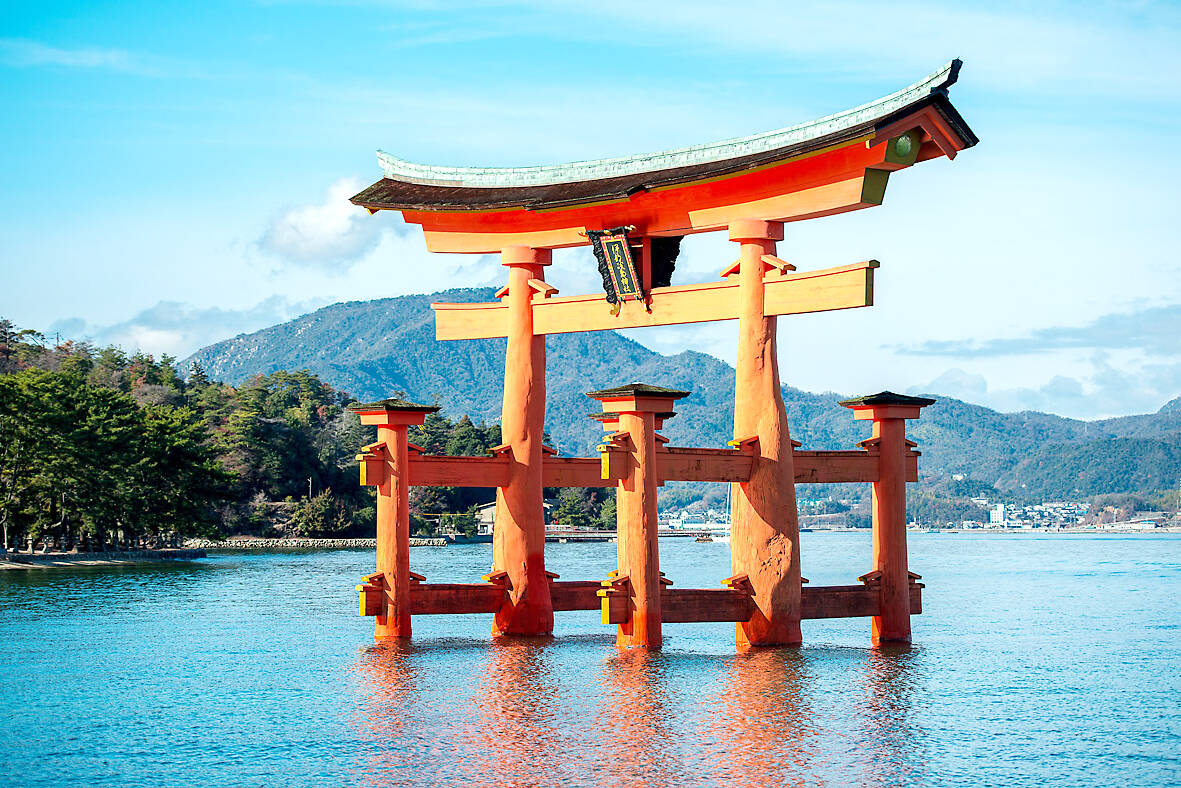Emi Toda was in her late 50s, recently divorced and getting by on wages from part-time jobs at supermarkets and an undertaker when she decided it was time for a change.
Now 65, she has appeared in dozens of adult movies catering to the “silver porn” market — a genre of films whose enduring popularity reflects Japan’s status as a super-ageing society.
“I wanted to save some money so I sent my details off to an employment agency,” Toda says.

Photo courtesy of Wikimedia Commons
When a call came offering her parts in three pornographic films, she was adamant that she wasn’t interested.
“They had my photo on file and thought I looked the part, so when the agency approached me again, I said yes.”
Her two adult daughters, with whom she lives in Tokyo, were surprisingly supportive.

Photo courtesy of Wikimedia Commons
“They said I looked comfortable with the idea, so they were happy for me to go ahead.”
NO CHOICE
While Toda chose to work in adult films, a 2020 survey by the cabinet office found that an alarming number of Japanese women said they had been forced into appearing in pornographic films by unscrupulous production companies. Some had signed “modelling” contracts but were later pressured into posing nude or have sex on camera.

Photo courtesy of Wikimedia Commons
The survey found that around a quarter of women in their teens, 20s and 30s had been solicited for jobs as models and idols. Among those who applied for jobs, 13 percent said they had been asked to take part in photo or video shoots of a sexual nature they had not consented to.
Two years later, Japan introduced a law allowing women who appear in adult movies to cancel their contracts within a year of the work’s release for any reason and without paying penalties. The material must then deleted and recalled, according to the law, which is designed to prevent producers from bullying or tricking people into appearing in films that would otherwise be available online in perpetuity.
Japan’s demographic timebomb means the senior porn genre has a large and growing potential fanbase. The proportion of Japanese aged 80 or over reached one in 10 for the first time last year, the government said in September ahead of the annual Respect-for-the-Aged Day. An estimated 36.2 million people are aged 65 or older, accounting for a record 29.1 percent of the total population. By contrast, the number of 18-year-olds is at a record low of 1.06 million, according to figures released last month.
Toda is not alone in moving into the adult video sector later in life.
Shigeo Tokuda, whose huge portfolio includes roles in Forbidden Elderly Care and The Manic Training of Lolitas, was recognized by Guinness World Records as the world’s oldest porn actor in 2017, when he was 83.
The 88-year-old Yuko Ogasawara did not make her debut until she was in her early 80s, while Maori Tezuka, who specialized in “accommodating” grandmother roles, retired in 2017 at the age of 80, telling the Tokyo Reporter website that acting in pornographic films had been “lively and fun.”
Toda prefers to appear in improbable tales of incestuous relationships spanning the generations.
“I suppose seeing an old woman having sex with a much younger man in those circumstances has a certain impact, because it’s not something you would expect to happen in real life,” she says.
In society, it’s almost like women disappear when they reach 50’ Japan’s “senior” pornography market is one of the few areas of entertainment in which older women are the center of attention.
“In ordinary Japanese society, it’s almost like women disappear when they reach 50, but this was different. I liked that, and thought, ‘why not?’” Toda says.
GROWING MARKET
After the three initial movies sold remarkably well, Toda was flooded with requests to appear again.
Her work forms part of a Japanese adult film market thought to be worth around ¥55 billion billion (about US$372 million) a year, and which employs an estimated 10,000 performers.
Takuma Kawabe, a producer at Ruby, which specializes in productions featuring mature women, says older consumers still bought large numbers of films on DVD.
“They have purchasing power, so there is definitely a market for older people,” he said.
Kawabe puts the popularity of senior porn down to an ageing consumer base and “the fact that female actors continue to pursue beauty and explore their sexuality even as they get older. Compared to people who were in, say, their 60s when I was a child — my grandparents’ generation — people who are in their 60s now have a much keener sense of beauty and desire for sex.”
While Toda’s daughters quickly accepted her unusual career move, she has never mentioned her work to friends. It is unlikely, however, that none of them has seen her work. Over the course of her seven-year career, she has performed opposite men more than three decades her junior, while her oldest co-star — her on-screen husband — was about 70.
What does she believe lies behind the appeal of adult videos featuring mature women?
“It’s not an Oedipus complex … I think men like to be pampered by older women,” says Toda, who keeps fit and healthy by practicing yoga and taking daily long walks. “That’s a big part of the appeal.
Everyone enjoys sex, but older people are embarrassed to talk about it. There’s a belief that when women reach a certain age they lose interest in sex, but that’s not the case. I think I have helped challenge that misconception.”
Not surprisingly, she has no plans to retire.
“I’m going to carry on acting as long as there are films that suit me.”

Most heroes are remembered for the battles they fought. Taiwan’s Black Bat Squadron is remembered for flying into Chinese airspace 838 times between 1953 and 1967, and for the 148 men whose sacrifice bought the intelligence that kept Taiwan secure. Two-thirds of the squadron died carrying out missions most people wouldn’t learn about for another 40 years. The squadron lost 15 aircraft and 148 crew members over those 14 years, making it the deadliest unit in Taiwan’s military history by casualty rate. They flew at night, often at low altitudes, straight into some of the most heavily defended airspace in Asia.

Beijing’s ironic, abusive tantrums aimed at Japan since Japanese Prime Minister Sanae Takaichi publicly stated that a Taiwan contingency would be an existential crisis for Japan, have revealed for all the world to see that the People’s Republic of China (PRC) lusts after Okinawa. We all owe Takaichi a debt of thanks for getting the PRC to make that public. The PRC and its netizens, taking their cue from the Chinese Communist Party (CCP), are presenting Okinawa by mirroring the claims about Taiwan. Official PRC propaganda organs began to wax lyrical about Okinawa’s “unsettled status” beginning last month. A Global

Taiwan’s democracy is at risk. Be very alarmed. This is not a drill. The current constitutional crisis progressed slowly, then suddenly. Political tensions, partisan hostility and emotions are all running high right when cool heads and calm negotiation are most needed. Oxford defines brinkmanship as: “The art or practice of pursuing a dangerous policy to the limits of safety before stopping, especially in politics.” It says the term comes from a quote from a 1956 Cold War interview with then-American Secretary of State John Foster Dulles, when he said: ‘The ability to get to the verge without getting into the war is

Like much in the world today, theater has experienced major disruptions over the six years since COVID-19. The pandemic, the war in Ukraine and social media have created a new normal of geopolitical and information uncertainty, and the performing arts are not immune to these effects. “Ten years ago people wanted to come to the theater to engage with important issues, but now the Internet allows them to engage with those issues powerfully and immediately,” said Faith Tan, programming director of the Esplanade in Singapore, speaking last week in Japan. “One reaction to unpredictability has been a renewed emphasis on